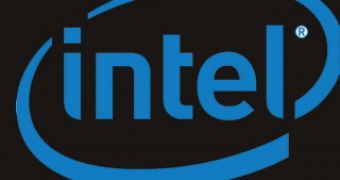The processors war, as it could be named, started between AMD and Intel way back, in the good old days of the first Pentiums and K6s. But as the times and technologies change, Intel is looking at its other competitors. It seems that AMD is not the rival now, as Intel tries to move on to newer markets. In a document that circulates among Intel's employees, the situation is summed up like this: "It's time to move on, Intel has bigger fish to fry."
Having taken back almost all the market shares lost to AMD a few years ago, Intel isn't worried about its traditional rival, as all performance problems of the x86 platforms from the 2005 and 2006 years have been erased by Core 2 and a well-oiled marketing engine. At least 20 competitors now entered Intel's visor and have been mentioned officially into the company's strategy. If it is not AMD, than who is it? Well, it seems that now Intel has conflicting market interests and not with a little, struggling-to-survive company, but with two other giant corporations: IBM and Samsung.
By far, Samsung is the biggest competitor Intel has. During 2004 and 2006, in the IT industry Samsung was on the second place in revenues, just after Intel, and Samsung is rapidly expanding, as in 2006 - while Intel was losing money to AMD - the Korean company increased its profits by 12%. On the other hand, IBM's computer division has some plans to expand too, even if according to the internal Intel report IBM doesn't want to be the biggest but the best chipmaker. The claim of the biggest belongs to Samsung.
IBM and Intel announced on the same day two new technologies designed to enhance the chipmaking process at the 45 nm node by reducing heat generation and power consumption. This should keep Moore's law on the move in the x86 space. Aside from AMD, IBM and Samsung, Intel's 2006 annual report listed another 17 competitors by name, from very diverse IT corners. Freescale, Nvidia, Toshiba, Hynix, VIA and Transmeta were on that list.
In the cramped x86 space, AMD is the Arch-rival of Intel, but Transmeta is perceived to be a threat too. Until Barcelona core based processors start shipping from AMD, Intel has no real competition on the high-end CPU market. From Intel's report comes out that the company is feeling confident in its abilities to deal with the Barcelona threat as well as with the new price war started by AMD.

 14 DAY TRIAL //
14 DAY TRIAL //